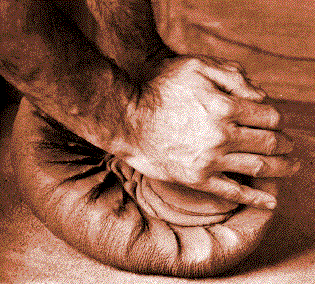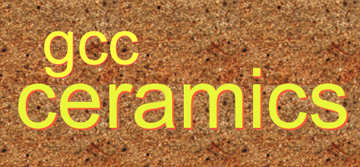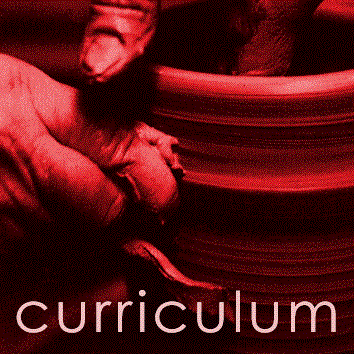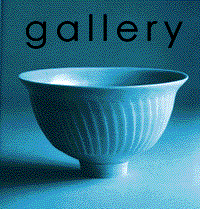ART 186
PROJECTS, TESTS, GRADING POLICY
MID-TERM PROJECTS:
_____ 1. Two soft slab cups with stamped texture
_____ 2. Two slab tiles, 6" x 6," carved texture
_____ 3. Three wheel-thrown bowls
FINAL PROJECTS:
_____ 4. Two cups, wheel thrown, handles required
_____ 5. One pitcher, wheel thrown, handle required
_____ 6. One lidded jar, wheel thrown
_____ 7. One plate, wheel thrown, 5" minimum
_____ 8. Two projects of your own choice, any technique
The above projects must include at least one example of each of the
following surface design techniques:
_____ stamped texture _____ carved texture
_____ sgraffito _____ glaze overlaps
_____ oxide painting _____ wax resist
TESTS AND GRADING PROCEDURES:
The mid-term projects' grade will be 30% of your final grade, the
final projects' grade will be 30% of your final grade, and there will be
two written tests which together will constitute 30% of your final grade
for the semester. The remaining 10% of your grade is based on class participation.
This includes attendance during class and your laboratory clean up practices.
Projects will be graded on both technical execution and design quality.
Cheating on a test will result in a grade of F for that test and your name
and a report of the cheating being forwarded to the Dean of Instruction
according to the Glendale Community College policy on cheating and academic
dishonesty. Make-up exams will be given only by prior arrangement. If you
must miss a written test or a project grading, you must schedule a make-up
with me in advance or you will receive a grade of F on that test or project
grading. Three unexcused absences are the maximum allowable. You will be
dropped from the class if you exceed this. Personal emergencies that require
your absence for an extended period of time should be discussed with me
in order to retain your seat in class. | 



